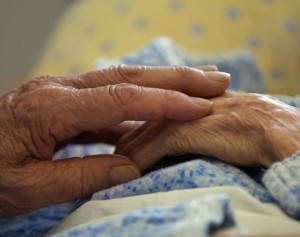Grief and Loss
The Empty Space
When you lose a wife or husband it is the first of many end of life losses. As you are finding out there is more than one person/thing missing in your life. Everything about your life is now different. The empty space will seem smaller as you go through the various stages of grief and as you change and grow from within. To help you with this change so that the empty space seem less empty you can:
Make a Plan:
You are changing even if you do not realize you are changing. The loss you experienced has created a vacuum in your daily life. In general, nature abhors a vacuum. Personally we do not like a hole or space so we rearrange things to make us feel complete. This change occurs whether you want it to or not. What you can control however, is how you want that change to look, feel and act. Make a list of goals of where you want to be in six months, a year or even eighteen months from now. What do you have to do to obtain these goals? For example do you need to downsize your home and move to a smaller abode? The more in control you feel the quicker you can manage your grief and loss.
Start Something New:
When change occurs in your life it is a good time to try something new. What have you wanted to do for some time but haven’t given it a go– like taking pottery classes? Perhaps there is a trip you have always wanted to take? Make a life list of things you still want to do before you die and start checking them off!
Rearrange Your Space:
It is important to change your personal surroundings to reflect the internal changes occurring in your life. Take stock of your material possessions and remove the ones from your living space that no longer suit you or that you no longer need/use. Go through your wife or husband’s belongings and keep a few treasured items and then remove the rest form your space. This cleansing process might be difficult but it will help you grieve and eventually help to fill that empty space.
Decide Who You Are:
No matter what our age we can always ask the question, “Who do I want to be now?” You are moving from a time in your life where decisions were decided as a “we” and not as an “I”. How do “I” want to live? Where do “I” want to live? Who do “I” want as friends? How do “I” want people to see me now? What decisions do “I” need to learn to do that we used to make as a “we”?
I had a perfect example in my grandmother. My grandfather died in 1985 at the age of 82. Throughout their marriage he refused to eat pizza or have it delivered. My grandmother decided in her next phase of life that she was going to have pizza. It helped defined what she wanted be. Small things can be as important as the big things.
Remember that you will be changing over the coming years. You do not have to be a passive observer to your own life. You do not need to feel like a victim because your husband (or wife) died but instead you can take the control seat. With each change you make the empty space will start to fade and it will, in some ways, seem smaller.





